
How To Sleep Soundly For Eight Hours
Poor sleep can significantly impair our quality of life. If you're struggling to dive into a cosy snooze (and stay there for plenty of hours), it's vital you don't get stuck in that place. While, in some cases, it's best to consult a health professional, here are some tips that may help to enhance sleep quality. Good luck, and good night!
With the stress of hectic modern life, more and more people are struggling to get a good night’s sleep, and/or suffer from insomnia. Quality sleep is vital to physical and mental health, and a lack of it can make “normal” life feel incredibly overwhelming and unenjoyable.
Below, we’ll discuss some actions you can take to improve sleep quality, and get those highly sought-after eight hours. As you read through our tips, remember that you’re not a machine and should not treat yourself, or be treated, as such. Increasing productivity at work or elsewhere should not be your main concern here. Your health should be the top priority, and if your work schedule is an impairment to it, work is the problem, not you.
The importance of getting enough sleep
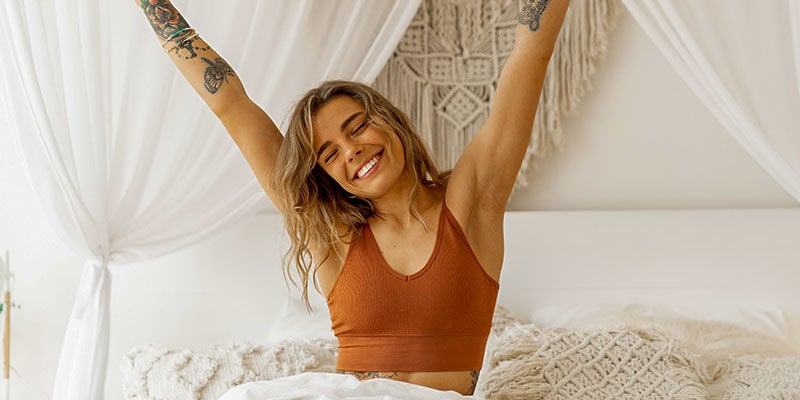
Sleep is fundamental to how we think, feel, and act—getting plenty of quality sleep is crucial. What an individual requires in order to sleep soundly varies from person to person, but no matter who you are, we all need decent sleep.
How much sleep do adults really need?
Eight hours is the usual figure, but this is more of an average guideline than a strict rule. Among other factors, how much sleep you need depends on your age. Young adults (18–25 years old) are expected to need 7–9 hours, as are adults (26–64 years old). But, of course, some people may require more.
How to get a complete night's sleep
Now we’ll get to the essential part of this article. Below are several tips for achieving quality sleep, in a more or less chronological order. We’ll begin with actions you can take during the day, then move on to those you can do before bed. Some tips may work for you; others may not—feel free to try a selection of actions that appeal to you.
Avoid caffeine after midday
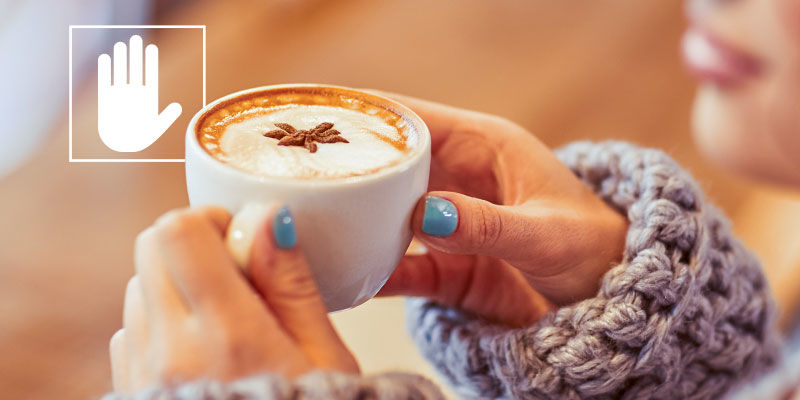
Drinking coffee and other caffeinated beverages is highly normalised. That cup in the morning, a coke in the afternoon, an espresso after dinner… In fact, “caffeine is the most widely used central nervous system (CNS) stimulant in the world” (Institute of Medicine (US) Committee on Military Nutrition Research, 2001).
While we use it so abundantly, caffeine is actually quite a strong substance, and it affects us in numerous ways. The pharmacological and physiological impact includes cardiovascular, smooth muscle, renal, and respiratory effects. Furthermore, caffeine can influence our physical and cognitive performance, alertness, memory, and mood.
Important to note in the context of sleep is caffeine’s half-life, which is actually much longer than most people realise. “Half-life” refers to the time required for half the amount of a substance to be eliminated or disintegrated by natural processes. In simple terms, our bodies need more time to process caffeine than we often think. Caffeine’s half-life can range between 1.5 and 9.5 hours.
So, if you’re looking to enhance your sleep, stay away from caffeinated drinks after midday to give your body plenty of time to process the stimulant before bedtime.
Get at least 30 minutes of exercise
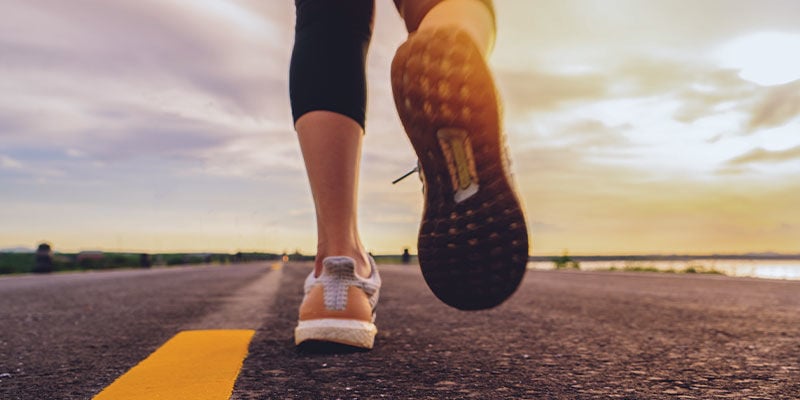
Exercise can be fun, and can enhance your quality of life. Before we discuss its benefits, remember that exercise can take many forms. All bodies are different, with individual needs and abilities—and that’s great. Find a type of exercise and a routine that works for you.
Now, how can we benefit our sleep routine by working out our bodies? Exercise is good for our mental and physical health, which can impact sleep. If you spend a lot of your life sitting, it can be a great way to soothe both the body and mind.
If you have a desk job, for example, exercise may help you feel physically tired rather than burnt out and/or wired in the evening. That feeling of physical tiredness can be blissful. If you can, consider bringing some of your physical activity outdoors, even if you just go for a walk.
And lastly, avoid being very active close to bedtime. Some people feel energised and alert after working out, so find out what works best for you, or opt for morning exercise to be safe.
Focus on whole foods
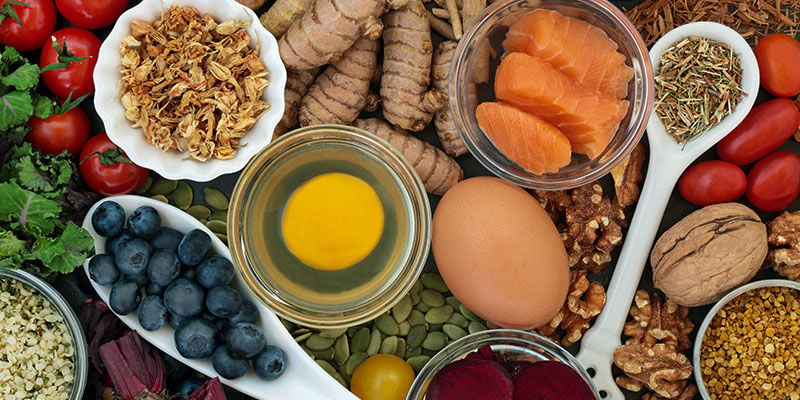
Whole foods are typically packed with wonderful vitamins and minerals that your body needs to be happy and function properly. And if it has plenty of resources, you’ll probably end up sleeping more soundly.
Also, processed foods often contain substantial amounts of refined sugar—a substance that can mess with your dopamine levels and have stimulating effects that probably won’t help you sleep.
No large meals late at night

We all know that our bodies do a lot of work to process the food we eat. When you go to sleep, your body will want to shut down digestion. However, it can’t do that if it’s only halfway into processing that delicious pizza you ate late in the evening. So, it’s important to not go to bed stuffed. However, it’s equally important not to go to bed hungry.
The best thing you can do to avoid both is to avoid large or heavy meals within a few hours before you go to bed. How long your body needs for digestion also depends on the type of food you eat, with raw and “heavy” food being harder to process than soup, for example.
Some sources advise to not eat anything after 5pm, or to avoid specific foods after that time. While you’re of course welcome to experiment with these things, be careful if food/eating is something you tend to overthink. In such cases, it might be best to avoid such strict rules, and to consult a professional before taking steps of that nature.
Consider natural sleep supplements
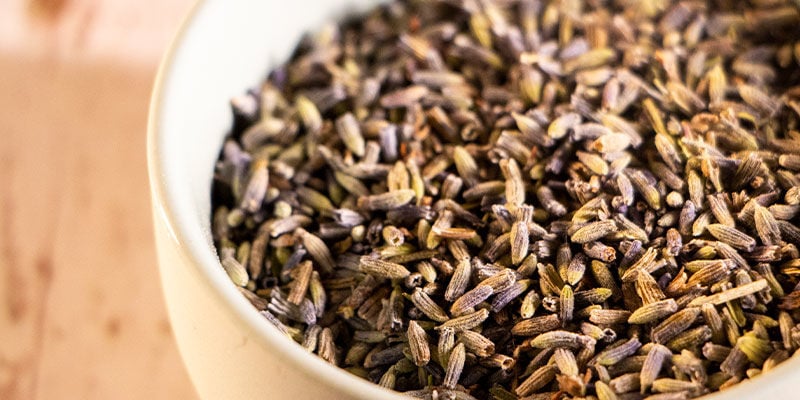
There are a number of options to choose from here. When choosing a natural sleep supplement, it’s important to make an informed decision. At the same time, most natural sleep supplements bear quite a low risk when it comes to adverse effects and such. This means you could try a few, one by one, until you know what works for you.
Lavender, for example, has been researched as a natural sleep aid for years. It’s got a long history of holistic use across regions and cultures. Nowadays, it’s one of the most commonly used natural sleep aids. According to a 2015 study, lavender and sleep hygiene together may improve sleep quality (Lillehei et al., 2015). It can be used in various ways, depending on your preference.
Chamomile is another classic, which you might know from childhood—kids often get chamomile tea when they’re ill. Some people have bad associations with the taste/smell due to those memories, but it can be valuable as a natural sleep aid.
Other common natural sleep supplements include:
- Valerian root
- Passionflower
- Melatonin
- Magnesium
- Glycine
- Tryptophan
- L-theanine
Which supplement and method of intake is most suitable for you is, of course, specific to the individual. As mentioned, it’s best to get informed and experiment.
Avoid your phone or TV an hour before bed
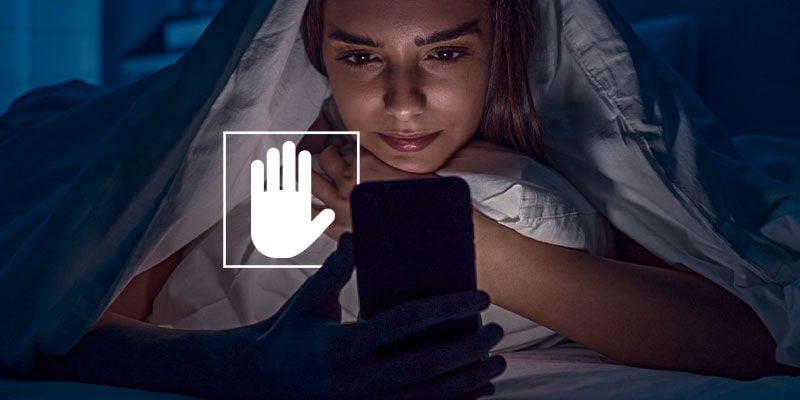
Most of us spend a lot of time looking at screens—phones, tablets, computers, TVs. While this is generally questionable in terms of health impact, it’s definitely detrimental if you do it too close to bedtime. Studies have shown that blue light from screens reduces or delays the production of melatonin, a hormone your body releases when it’s dark that makes you feel tired (Gringras et al., 2015).
Exposure to blue light within an hour before bedtime not only reduces your body’s natural melatonin production, but it can also reduce the amount of time you spend in certain sleep stages, namely slow-wave and rapid-eye movement (REM) sleep. Both these stages are essential for proper cognitive functioning.
So, as tempting as it might be to watch something or scroll along before bed—save it, for the sake of your sleep quality, and, consequently, your mental health.
Stick to a bedtime routine
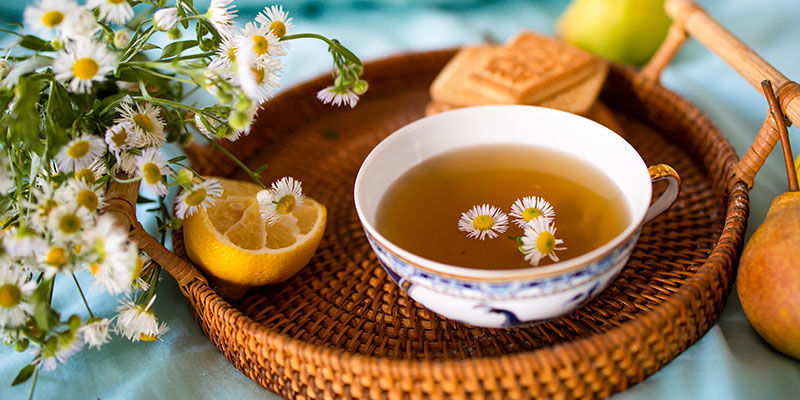
The body loves routine, and this is especially true when it comes to sleep.
Try to establish a bedtime ritual of some sort. For example, drink herbal tea or hot milk, do a few minutes of stretching, brush your teeth, and take a shower. Repeating the same routine every night helps to “tell” the body it’s time to rest.
Also, try to stick to a sleep schedule if your life allows for it. This way, you can “train” your biological clock, and your body will learn to get tired and wake up around the same time every day.
Should you be concerned about the time you go to bed?
Sticking to a sleep schedule doesn’t need to involve going to bed early. Everyone is different, and the key is simply to find an eight-hour window to sleep that works for you. Some people prefer to go to bed early and get up with the sun; others like to stay up late and sleep in. As long as you stick to a schedule, any window may help you achieve better-quality sleep.
What to do if you still can't sleep for eight hours

If, with all the tips above, you’re still struggling to get a good night’s sleep, you should consider consulting a health professional. There are a lot of nuances to sleep conditions, and it’s likely a physician and/or psychologist may be able to give you some valuable advice. Also, remember that modern life can be incredibly nerve-racking, so try to adjust your life to your mental and physical health, rather than the other way around.
- Gringras, Paul, Middleton, Benita, Skene, Debra J., Revell, & Victoria L. (2015/10/13). Bigger, Brighter, Bluer-Better? Current Light-Emitting Devices – Adverse Sleep Properties and Preventative Strategies - https://www.frontiersin.org
- Institute of Medicine (US) Committee on Military Nutrition Research. (2001). Pharmacology of Caffeine - https://www.ncbi.nlm.nih.gov
- Lillehei, A. S., Halcón, L. L., Savik, K., & Reis, R. (2015). Effect of Inhaled Lavender and Sleep Hygiene on Self-Reported Sleep Issues: A Randomized Controlled Trial - https://www.liebertpub.com
-
 8 min
10 October 2022
How To Use Cannabis To Improve Sleep
Cannabis is used for a wide variety of purposes, including to promote a healthy night's rest. But does weed really benefit your slumber, or does it harm sleep quality? Furthermore, which cannabis...
8 min
10 October 2022
How To Use Cannabis To Improve Sleep
Cannabis is used for a wide variety of purposes, including to promote a healthy night's rest. But does weed really benefit your slumber, or does it harm sleep quality? Furthermore, which cannabis...
-
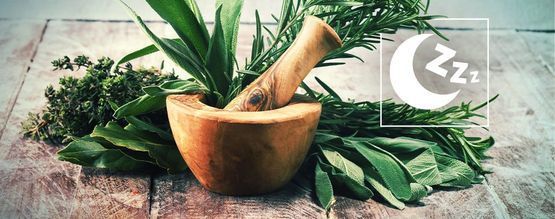 4 min
11 October 2020
Best Natural Herbs to Promote Sleep
We all know how important sleep is. From our mindset to our mood, sleep is undeniably essential to human functioning. But sometimes we don’t get the rest we so well deserve. There are many factors...
4 min
11 October 2020
Best Natural Herbs to Promote Sleep
We all know how important sleep is. From our mindset to our mood, sleep is undeniably essential to human functioning. But sometimes we don’t get the rest we so well deserve. There are many factors...
-
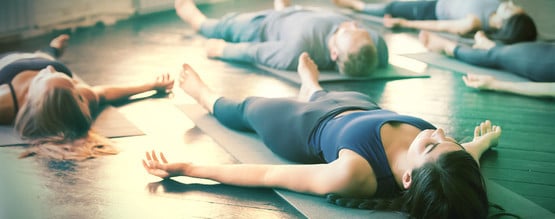 3 min
13 June 2019
Dream Yoga: Sleep Meditation
Dream yoga is thought to be one of the six-subtypes of yoga outlined by the Tibetan guru Marpa. The ancient practice of dream yoga is still in practice by monks to this day and consists of six stages.
3 min
13 June 2019
Dream Yoga: Sleep Meditation
Dream yoga is thought to be one of the six-subtypes of yoga outlined by the Tibetan guru Marpa. The ancient practice of dream yoga is still in practice by monks to this day and consists of six stages.
-
 1 min
6 November 2017
Best Incense For Relaxation And Sleep
Here at Zamnesia, we bring you all sorts of herbs. Herbal incense is a safe and cost-effective way to unwind. Discover our best varieties of incense for easing the mind, body and soul.
1 min
6 November 2017
Best Incense For Relaxation And Sleep
Here at Zamnesia, we bring you all sorts of herbs. Herbal incense is a safe and cost-effective way to unwind. Discover our best varieties of incense for easing the mind, body and soul.







 United States
United States













